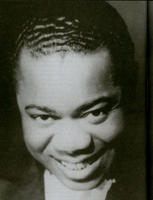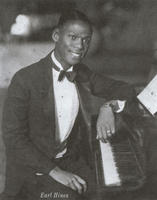 In memoriam New Orleans, let's begin the Partch analyis with Louis Armstrong and Earl Hines' "West End Blues".
In memoriam New Orleans, let's begin the Partch analyis with Louis Armstrong and Earl Hines' "West End Blues".So what do have here? A series of instrumental call and response breaks, trombone and horseshoe-type percussion, a wordless vocal answering a clarinet, all overlaying a stately piano accented rhythm and chordal accompaniment. Beginning with concise solo trumpet and ending with a brief piano flourish, does this fit the 'abstract' instrumental model?
In one way, yes, for the mental sense is that this is beautifully proportioned blues, perfect in structure. But in another way, no. This music hews almost completely to the corporeal because every instrument here is 'speaking' with as much descriptive and emotive power as found in any dance or poetry-allied vocal performance. This is a lament, conveying a sense of loss and sadness, that cries out - no more so than towards the end when Armstrong begins his closing solo with a long held and stunningly emotive note that lifts the tune into another dimension. Spiritual, yes - that too.
 "West End Blues" illustrates as much as anything the power of music to confound verbal description or classification, however hard and thoughtfully that we try.
"West End Blues" illustrates as much as anything the power of music to confound verbal description or classification, however hard and thoughtfully that we try.
No comments:
Post a Comment